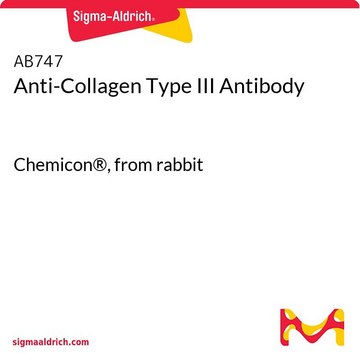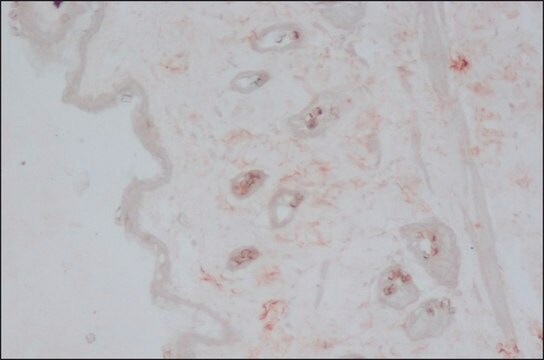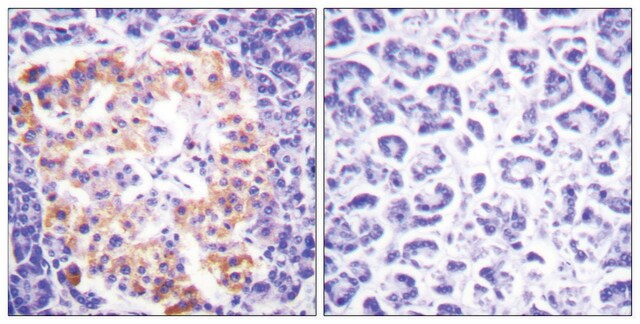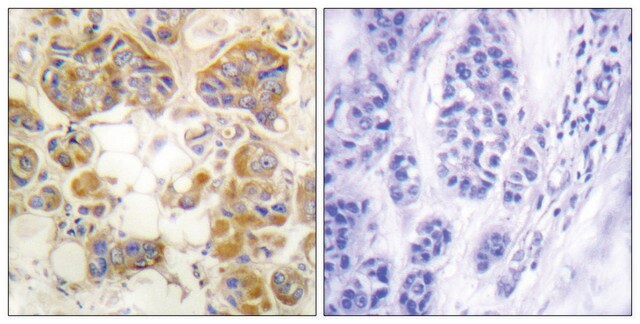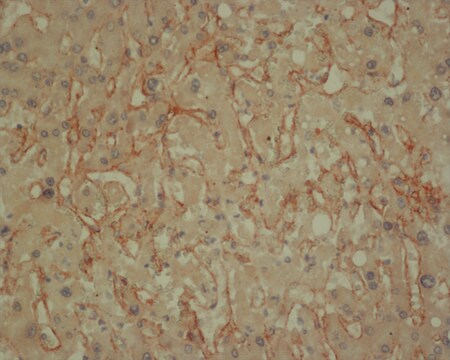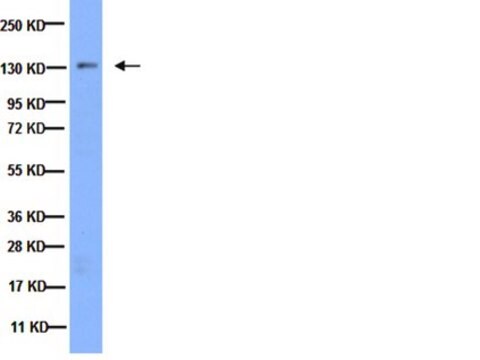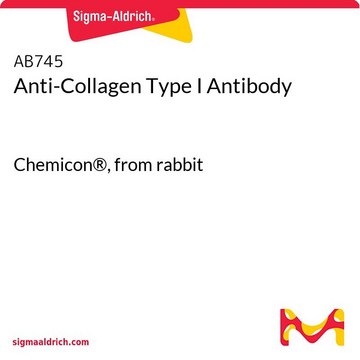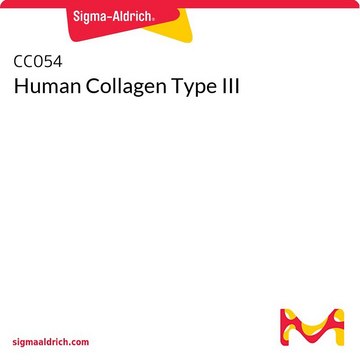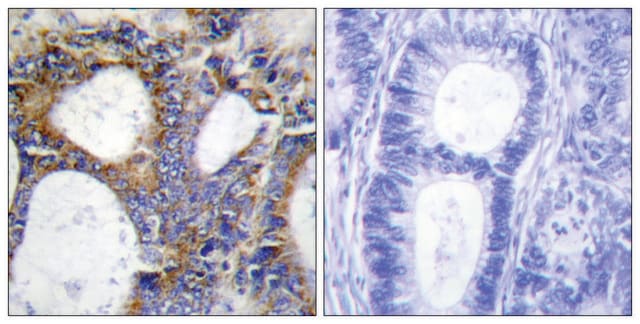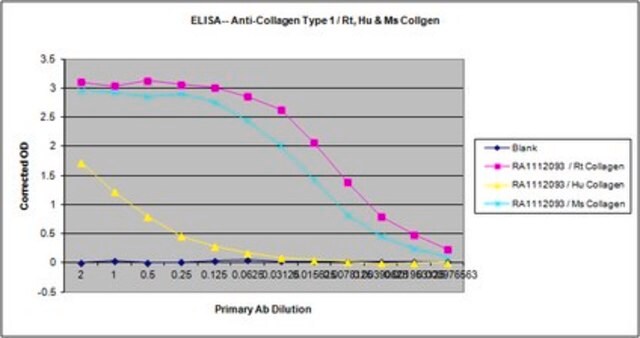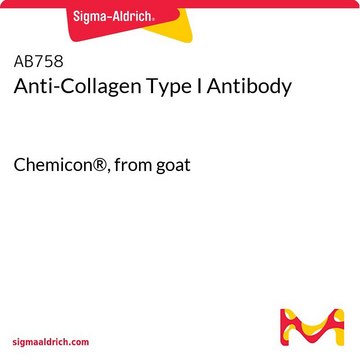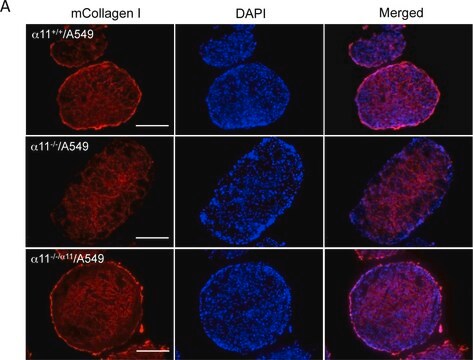C7805
Anti-Collagen Type III (COL3A1) Antibody
mouse monoclonal, FH-7A
Synonym(s):
Anti-Collagen III antibody
About This Item
Recommended Products
Product Name
Monoclonal Anti-Collagen, Type III antibody produced in mouse, clone FH-7A, ascites fluid
biological source
mouse
conjugate
unconjugated
antibody form
ascites fluid
antibody product type
primary antibodies
clone
FH-7A, monoclonal
mol wt
antigen 70 kDa
contains
15 mM sodium azide
species reactivity
human, rat
technique(s)
dot blot: suitable
immunohistochemistry (frozen sections): 1-4,000 using frozen sections of human skin
indirect ELISA: suitable
western blot: suitable using a denatured-reduced preparation
isotype
IgG1
UniProt accession no.
shipped in
dry ice
storage temp.
−20°C
target post-translational modification
unmodified
Gene Information
human ... COL3A1(1281)
rat ... Col3a1(84032)
General description
Specificity
Immunogen
Application
Biochem/physiol Actions
Disclaimer
Not finding the right product?
Try our Product Selector Tool.
recommended
Storage Class Code
10 - Combustible liquids
WGK
WGK 2
Flash Point(F)
Not applicable
Flash Point(C)
Not applicable
Choose from one of the most recent versions:
Certificates of Analysis (COA)
Don't see the Right Version?
If you require a particular version, you can look up a specific certificate by the Lot or Batch number.
Already Own This Product?
Find documentation for the products that you have recently purchased in the Document Library.
Customers Also Viewed
Our team of scientists has experience in all areas of research including Life Science, Material Science, Chemical Synthesis, Chromatography, Analytical and many others.
Contact Technical Service
